Related Research Articles

Blaise de Vigenère was a French diplomat, cryptographer, translator and alchemist.
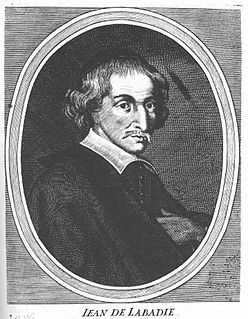
Jean de Labadie was a 17th-century French Pietist. Originally a Roman Catholic Jesuit priest, he became a member of the Reformed Church in 1650, before founding the community which became known as the Labadists in 1669. At its height the movement numbered around 600 with thousands of adherents further afield. It attracted some notable female converts such as the famed poet and scholar, Anna Maria van Schurman, and the entomological artist Maria Merian.
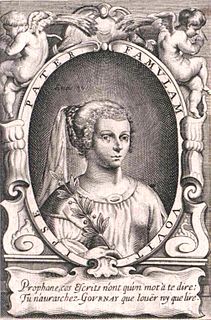
Marie de Gournay was a French writer, who wrote a novel and a number of other literary compositions, including The Equality of Men and Women and The Ladies' Grievance. She insisted that women should be educated. Gournay was also an editor and commentator of Michel de Montaigne. After Montaigne's death, Gournay edited and published his Essays.
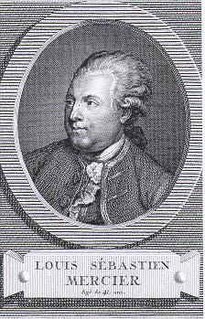
Louis-Sébastien Mercier was a French dramatist and writer, whose 1771 novel L'An 2440 is an example of proto-science fiction.
Ibrahim al-Haqilani was a Maronite Catholic philosopher and linguist involved in the translation of the Bible into Arabic. He translated several Arabic works into Latin, the most important of which was the Chronicon orientale attributed to Ibn al-Rahib.

A polyglot is a book that contains side-by-side versions of the same text in several different languages. Some editions of the Bible or its parts are polyglots, in which the Hebrew and Greek originals are exhibited along with historical translations. Polyglots are useful for studying the history of the text and its interpretation.
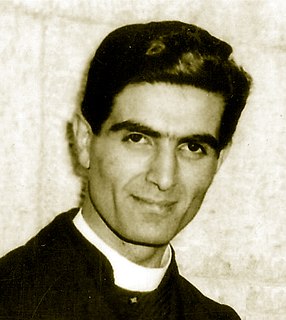
Youakim Moubarac was a Lebanese French scholar. He was an Islamologist, an Arabist and a disciple of the Orientalist Louis Massignon and of philosopher Louis Gardet. A Maronite priest, Moubarac dedicated his life and major works to interfaith dialogue between Christianity and Islam, to Arab and Lebanese causes, to the unity of the Church and to the Maronite Church Antiochian heritage.

Gabriel Sionita was a learned Maronite, famous for his role in the publication of the 1645 Paris Polyglot of the Bible.
Lejay may refer to:

Michel de Marolles, known as the abbé de Marolles, was a French churchman and translator, known for his collection of old master prints. He became a monk in 1610 and later was abbot of Villeloin (1626–1674). He was the author of many translations of Latin poets and was part of many salons, notably that of Madeleine de Scudéry. He is best known for having collected 123,000 prints - this acquisition is considered the foundation of the cabinet of prints in the royal library, though it was only constituted as a department in 1720.

Bernard de La Monnoye was a French lawyer, poet, philologue and critic, known chiefly for his carols Noei borguignon.
Michel Le Clerc was a French lawyer and dramatist.

François Savary de Brèves was a French ambassador of the 16th and 17th centuries as well as an Orientalist.

Antoine Vitré (1595–1674) was a French printer of the 17th century. He was the King's printer for Oriental languages.
Siméon Marotte de Muis (1587–1644) was a French churchman and Hebraist, professor at the Collège du roi from 1614, and biblical commentator.
Jean-Pierre-Louis de Luchet (1740–1792), also known as the Marquis de La Roche du Maine, or Marquis de Luchet, was a French journalist, essayist, and theatre manager.
Sarkis Rizzi, or Sarkis el-Rizzi was a Lebanese Maronite bishop. On his initiative, he was the first clergyman to print of a book in an Arab country.
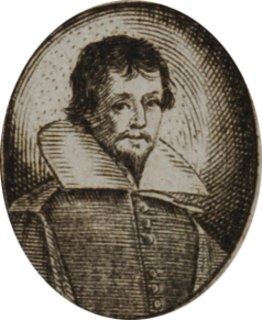
Pierre-Jean Fabre was a French doctor and alchemist. Born in Castelnaudary, France in 1588, he studied medicine in Montpellier, France. He became a practitioner of the iatrochemical medicine of Paracelsus. Beginning in 1610 he practiced medicine in Castelnaudary. He became famous as a specialist in the plague which was particularly severe in central Europe during the Thirty Years' War. Fabre prescribed chemical medications for the treatment of the plague and was at one time the private physician of King Louis XIII of France.
Philippe d'Aquin born Mordekhaï Crescas, was a French physician, hebraist, philologist and orientalist, born Jewish, but who converted to Catholic Christianity and was later involved in persecution of Jews.

The Bordeaux copy of the Essays is a 1588 edition of Michel de Montaigne's Essais held by the Bibliothèque municipale de Bordeaux.
References
- ↑ France, Dictionnaire encyclopedique. Philippe Le-Bas - 1843 "LEJAY (Gui-Michel), avocat au parlement de Paris, né dans cette ville en 1588, mort doyen de Vezelay en 1674, est connu par la Bible polyglotte, dont il a été éditeur,"
- ↑ Biographie universelle, Michaud - 1827 " ... qui avaient paru jusqualors, sans en excepter celle de Lejay, qui sedistingue néanmoins par la beauté des caractères "
- ↑ A new general biographical dictionary Hugh James Rose, Henry John Rose, Thomas Wright - 1853 - Volume 4 - Page 182 "He died while saying mass, October 12, 1629. During his life he was the patron of letters, and smoothed obstacles at Rome to the printing of Lejay's Polyglott. His own works, which were chiefly controversial, had great popularity in their day."